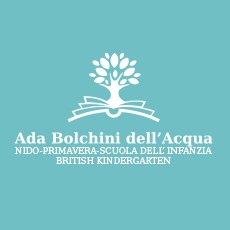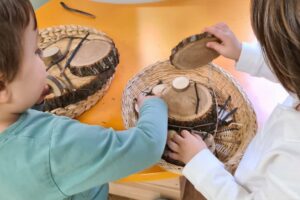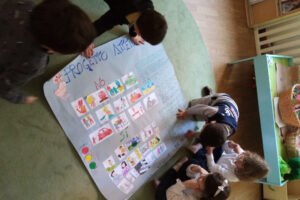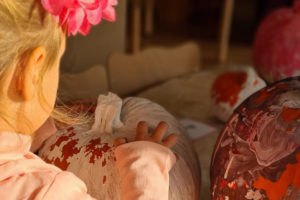STEAM activities and play-based projects for our little guests at the British Kindergarten
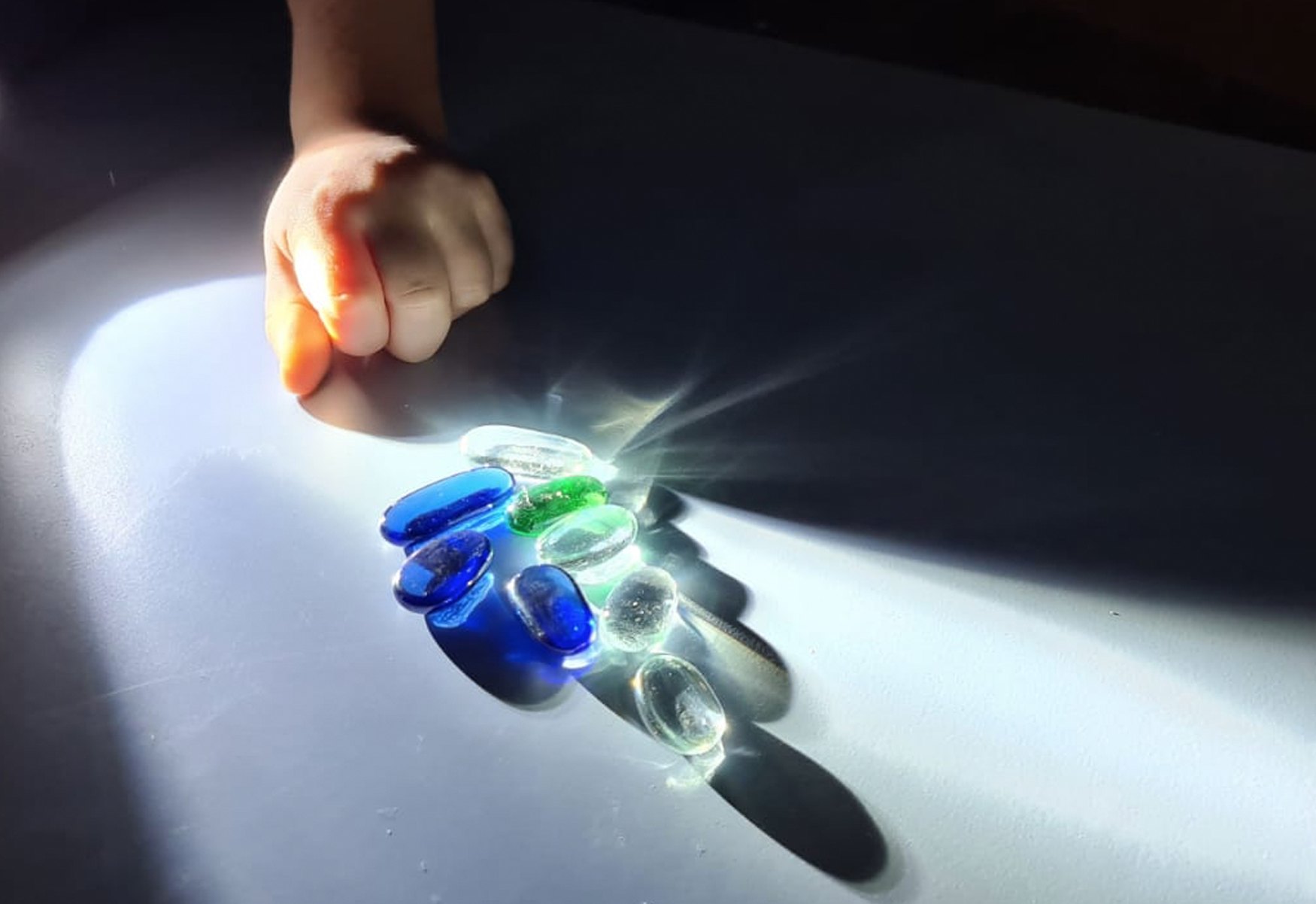
In our British Kindergarten, the child is at the centre of the activities: the teacher creates a safe educational environment for them, from which he/she steps back and watches how kids move, freely, from one activity to another, doing what they feel like doing.
We promote learning following the play-based EYFS British curriculum, with adult-led and child-initiated activities.
With this in mind, we have developed a series of projects and activities (self-standing activities as well as activities within the projects themselves) that promote children engagement and free experimentation.
Some activities are open-ended, basically, it’s any activity that doesn’t have a set outcome. Painting, cardboard tubes, and blocks are all examples of open–ended activities because you can play with each of them in a number of ways with no set outcome. meaning that there is something to be done and without a direct end conclude, some other activities have just the purpose of having the kids working together.
At the British Kindergarten in Bolchini, we make large use of STEAM activities: these are activities that includes an artistic or creative element, in addition to one (or more) of the traditional STEM pillar subjects (science, technology, engineering, maths).
Art is always there, and its integration with the classic stem pillars is made to encourage children to think more broadly about real-world problems. It helps them ask questions, connect the dots, solve problems, think creatively, and be innovative.
Studying the solar system – a project of our British Kindergarten
Starting from the beginning of the year, the British Kindergarten has developed a project aimed at studying the planets and everything beyond them.
We have arranged a series of activities that led the kids to a narrowing down exercise: we started from planets, we moved to the Sun, Moon and Earth; in the second part of the year we’ll then move into explaining and teaching (always through play) that on the Earth there are continents, countries, regions, cities, and we’ll narrow down until we’ll get to the “YOU”: there is also you, as part of this big universe, so now, let’s talk about you!
We’ll get to this last step during the summer, and we’ll talk about the individual feelings, inclinations, personalities with the older kids; and with the little ones? We’ll keep it simple, and we’ll relate the “YOU” to their families: mummy, daddy, sisters, brothers.
Within this big project, we have developed and outlined some projects. Some examples are these two interesting and engaging STEAM activities: the Moonrock hunting and the Focault’s pendulum.
The Moonrock hunting
A STEAM laboratory of lights as part of the Solar System inquiring studies to better understand the reason why exist day and night, why the moon changes shapes, playing with the torch gave the children the opportunity to explore the effects of light into the objects around the classroom and to play with shadow they could trace the shadow using papers and crayons. So the idea of organizing a treasure hunt in the class was well received by the children that couldn’t wait to explore the classroom in the dark. What was the game about? Lights off, torches on, let the hunt begin!
And the treasure? Little shiny Moon rocks, hidden in every corner of the class! The kids had so much fun!
The Focault’s pendulum
What is more beautiful than having little kids understand the famous experiment that demonstrates the Earth’s rotation, through an activity that combines science and art, engages them, stimulates their thinking and answers many questions that yet may be hard to understand also for some adults?
We reproduced the pendulum in the class, and we hung a plastic cup (with a hole in it ☺ ) full of paint at the end of the pendulum. The swing of the pendulum left traces of colours on the floor and kids could see that these traces were moving on the ground, they were not always on the same spot: the observation of the pendulum, its movement and the traces of colours left on the floor helped the kids understand, in a simple and creative way, the concept of Earth rotation.
After this activity, we are sure it will be much easier for them to study the scientific experiment at school and to deeply understand it when they are older ☺
Thematic weeks at the British Kindergarten
Following the UK curriculum, we have a weekly book reading on a specific theme. Starting from the book reading (normally 2 or 3 books), moving into an art lab, a sensorium activity in which children transform their reading into drawings about their favourite part of the book….Every week there is a full program with maths, science, outdoor education, painting, creation!
An example?
Kindness is a theme we have developed in our Atelier manipulating sensorial activities well designed by the teacher, and that we tend to explore on a monthly basis. Following the Montessori approach, we focus our lesson on being kind towards others and the planet: a gentle hug to a friend, a compliment, a smile…We help and encourage our children put kindness into action through thoughts, words, and deeds, so the world will truly be a more peaceful and gentler place to live.
In this context, the children experience the sensorium activity: during the activity, there was a nice flower candle in the class, a fabulous flower scent spread in the entire room and in the meanwhile, the kids were listening to the “4 seasons” of Vivaldi 🙂
Stimuli for all senses during these activities for kids!
Among the many other activities that our kids are busy with, we’d like to mention two simple, yet very formative activities, that find their roots in the Montessori approach, an approach we embrace and tend to reproduce in as many fields as possible of our daily life at school.
Alphabet cards: kids play with Montessori cards of alphabet sorting – it is nice to watch them placing the cards on the floor and help each other to sort out the order of the letter!
Penguin Montessori number counting cards: this is our approach to put kids in contact with mathematics, counting and sorting: they are useful to teach kids number recognition and counting, they are fun and kids absolutely love them!
This is just a taste of our British Kindergarten and the approach to play-based learning we follow on a daily basis, that shows how practically we follow the British curriculum and bring some magic to our class every day!
